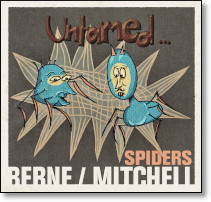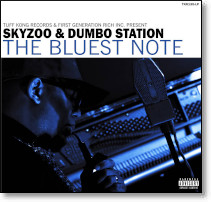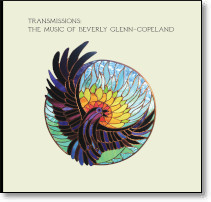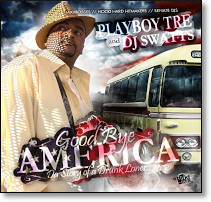Latest
2024
Jul
Jun
May
Apr
Mar
Feb
Jan
2023
Dec
Nov
Oct
Sep
Aug
Jul
Jun
May
Apr
Mar
Feb
Jan
2022
Dec
Nov
Oct
Sep
Aug
Jul
Jun
May
Apr
Mar
Feb
Jan
2021
Dec
Nov
Oct
Sep
Aug
Jul
Jun
May
Apr
Mar
Feb
Jan
2020
Dec
Nov
Oct
Sep
Aug
Jul
Jun
May
Apr
Mar
Feb
Jan
2019
Dec
Nov
Oct
Sep
Aug
Jul
Jun
May
Apr
Mar
Feb
Jan
2018
Dec
Nov
Oct
Sep
Aug
Jul
Jun
May
Apr
Mar
Feb
Jan
2017
Dec
Nov
Oct
Sep
Aug
Jul
Jun
May
Apr
Mar
Feb
Jan
2016
Dec
Nov
Oct
Sep
Aug
Jul
Jun
May
Apr
Mar
Feb
Jan
2015
Dec
Nov
Oct
Sep
Aug
Jul
Jun
May
Apr
Mar
Feb
Jan
2014
Dec
Nov
Oct
Sep
Aug
Jul
Jun
May
Apr
Mar
Feb
Jan
2013
Dec
Nov
Oct
Sep
Aug
Jul
Jun
May
Apr
Mar
Feb
Jan
2012
Dec
Nov
Oct
Sep
Aug
Jul
Jun
May
Apr
Mar
Feb
Jan
2011
Dec
Nov
Oct
Sep
Aug
Jul
Jun
May
Apr
Mar
Feb
Jan
2010
Dec
Nov
Oct
Sep
Aug
Jul
Jun
May
Apr
Mar
Feb
Jan
2009
Dec
Nov
Oct
Sep
Aug
Jul
Jun
May
Apr
Mar
Feb
Jan
2008
Dec
Nov
Oct
Sep
Aug
Jul
Jun
May
Apr
Mar
Feb
Jan
2007
Dec
Nov
Oct
Sep
Aug
Jul
Jun
May
Apr
Mar
Feb
Jan
2006
Dec
Nov
Oct
Sep
Aug
Jul
Jun
May
Apr
Mar
Feb
Jan
2005
Dec
Nov
Oct
Sep
Aug
Jul
Jun
May
Apr
Mar
Feb
Jan
2004
Dec
Nov
Oct
Sep
Aug
Jul
Jun
May
Apr
Mar
Feb
Jan
2003
Dec
Nov
Oct
Sep
Aug
Jul
Jun
May
Apr
Mar
Feb
Jan
2002
Dec
Nov
Oct
Sep
Aug
Jul
Jun
May
Apr
Mar
Feb
Jan
2001
Dec
Oct
Sep
Aug
Jul
Jun
May
Apr
Mar
Feb
Wednesday, February 24, 2021
Tom Cotton's Big Plan
Senator Tom Cotton (R-AR) launched his 2024 presidential campaign last week with the publication of his bold plan "to send the Chinese Communist Party into the 'ash heap of history'": Beat China: Targeted Decoupling and the Economic Long War. This comes at a time when the Biden administration is making aggressive noises about China, to no small extent because Republicans are goading him on. Biden's rhetoric in turn offers cover and legitimation for Cotton's much more dangerously extreme stance. For an "explainer" on Cotton's scheme, see Alex Ward: Tom Cotton's big plan to "beat China," explained.
Cotton's plan has two major planks. The first is to "decouple" from China's economy, isolating China from world trade, in the hopes that will lead to an economic collapse that will bring down the political order and end Communist Party rule. Something like that did happen to cause the collapse of the Soviet Union, but there are many differences between the two cases, and far more stringent efforts to isolate North Korea, Cuba, and Iran only resulted in the targeted regimes digging in deeper to maintain their hold on power.
The second plank is a set of reforms to the American economy to make it more competitive with China, and to use US power around the world to force other countries to curtail their trade with China and to buy more American exports. This section is less coherent (e.g, "the senator singles out Japan as a place that could buy more American goods, and points to Malaysia and Vietnam as having labor forces that could produce these goods at competitive prices"), and in some cases comes close to admitting that Chinese state-directed methods are more effective than the US "free market" fetish (e.g., in the production of valuable "rare earth" metals).
We need to consider four questions to evaluate Cotton's plan:
- What are the risks to the US of forcing regime change on China? Are there risks so great that they would limit US action?
- Economic sanctions are widely regarded as a low-risk alternative to direct military action. But are they effective at achieving Cotton's goals, specifically regime change?
- Even if Cotton's plan can be implemented successfully without risk, is it really something Americans would and should want to do?
- Aside from the direct costs and risks of waging economic warfare, what are the significant opportunity costs -- other things that the US should be doing -- in choosing to oppose China?
If you honestly consider these questions, I'm pretty sure you'll see that Cotton's "plan" is one of the dumbest and most reckless ever. Indeed, the answers are so obvious one might quickly move on to real puzzles, like what motivates Cotton in this case? Romanticism for the lost Cold War? Defense industry graft? The macho certitude that America can always bend the world to its will?
Let's take these questions one by one:
1. What are the risks to the US of forcing regime change on China? Are there risks so great that they would limit US action?
Regime change is a tall demand, one that few rulers are willing to acquiesce to, and consequently one that is rarely insisted upon. Even the US compromised in accepting the less-than-unconditional surrender of Japan in 1945. America's Cold War aim was containment of the Soviet Union, not regime change. So Cotton's call for ending Communist Party control of China is an extremely aggressive stance. Admittedly, the US has insisted on regime change when confronting small and relatively weak countries, like Panama, Iraq, and Afghanistan. But China is not small nor weak. China, like the US, possesses nuclear weapons and missiles that can deliver them anywhere on earth. China is about the same physical size as the US, has a comparably sized economy, and close to four times as many people. While the US may have technical military advantages, China is too big to attack, and there are major limits on how much the US can intimidate China. Conversely, the US is too vulnerable to a Chinese counterattack to risk any existential military threat to China.
Cotton probably understands that much, but is hoping to find some internal flaw in the Chinese system that will cause it to collapse if given a little push -- as happened with the Soviet Union. This view is very naive. Chinese leaders observed the collapse of the Soviet system in Russia and Eastern Europe very closely, and moved decisively to repress dissent, and to direct needed economic reforms from the top down, reinforcing rather than undermining Party power. And they've been very successful, with a sustained 30-year track record of economic growth that far exceeds the performance of any other country or system, not least compared to the US.
2. Economic sanctions are widely regarded as a low-risk alternative to direct military action. But are they effective at achieving Cotton's goals, specifically regime change?
Short answer is no. The US has tried blockades and crippling economic sanctions against a number of much smaller, less self-sufficient nations (North Korea, Cuba, Iraq, Iran, more recently Venezuela), and the net effect has been to entrench existing regimes even further. Moreover, after the US did force regime change in Iraq, there was no groundswell of public support for their "liberation" -- rather, there was an armed revolt against US occupation. The only case of sanctions working was against South Africa, where they threatened long-standing economic ties between the West and the Apartheid regime. (This suggests that sanctions might be effective at influencing Israel to reform its own Apartheid regime, although I can think of reasons to be skeptical.)
The standard response to sanctions is autarky: if you can't import goods, make them yourself. This is tough for small nations, especially those with export-dominated economies. (Cuba especially struggled, most severely after the Soviet Union collapsed and Russia stopped buying up their sugar surplus and providing them with oil, but Cuba survived nonetheless.) China is big, diverse, and already provides most of its own needs. But also China's size makes other nations doubt the value of sanctions. It's easy for a US "ally" to forego trade with North Korea or Cuba or Myanmar, but China is a big trade partner for everyone, with a lot of hard currency (especially dollars) to buy and invest abroad. And China offers the irresistible prospect of a very large market for foreign exporters and investors, and they've long plied this prospect for favorable terms. It's hard to think of major US companies who don't have investments and operations tied to China. That, in turn, buys China political favors, as when they got Boeing to lobby for approval of China's WTO membership.
3. Even if Cotton's plan can be implemented successfully without risk, is it really something Americans would and should want to do?
This is the question least likely to be raised, given how easy it is for Americans to slip back into a Cold War mindset. Right-wingers forget that the Nixon thaw with China was actually a Cold War ploy to isolate the Soviet Union, and that China was long regarded as a Communist country we could do business with. Labor Democrats worried about losing jobs to China, but that only started bothering Republicans when Trump made it an issue in 2016. Trump canceled TTP and played some tariff games, but did nothing to rebalance trade with China, let alone safeguarding American jobs. Meanwhile, neoliberal Democrats took advantage of Chinese abuses of human rights, adding to the list of dictatorships Trump was accused of cozying up to. Meanwhile, right-wingers panicked over the "rising tide of socialism" among Democrats, resurrecting the deep paranoia of the racist "who lost China?" charges of 1949-50.
Still, what difference does any of this make? The oft-repeated charge that China wants to dominate the next century the way the US has dominated the last one, but that only brings up two further questions: has domination really paid dividends to most Americans? And is domination by any country even desirable looking forward? I'd argue both answers are no, and I'd further assert that the charge reflects Americans' own dissatisfaction with their supposed rule. Policing the world is a big job the US isn't up to (and was never much good at). Bankrolling the world is another big problem. Politics in the US has been ceded to special interests, whose orientation doesn't even come close to satisfying domestic needs, let alone those of people elsewhere. Despite the absence of democratic controls, the Chinese government is probably more in tune with the needs and desires of its people than the American system is. After all, over the last 30 years, China has lifted the majority of its population out of poverty, while income and wealth of most Americans has stagnated or declined.
You can also look at the "defense" postures of the two countries. The US projects power through nearly a thousand bases scattered all around the world. The US spends as much on "defense" as the rest of the world combined. China spends about one-quarter as much, enough to control its own population, defend its borders, and deter attack, but has little presence beyond its borders. The main points of contention between the US and China are Taiwan -- formerly part of China, which broke away when Chiang Kai-Shek's Nationalist Army retreated there in 1949, although it had been occupied by Japan from 1895-1945; after retreat, Chiang continued to claim mainland China, and tried to foment guerrilla war against Mao's government -- and various uninhabited islands in the China Sea, which China wants to exploit economically. These are old claims, which China has been steadfast in but has pursued very cautiously. China has also fought several border skirmishes with India, based on conflicting border claims dating back to British control of India, but China hasn't sought to extend its territory beyond the disputed claims.
Chiang was a brutal and corrupt military ruler, but since his death Taiwan has developed into a stable, prosperous democracy. It would be a shame to see it incorporated into a China that falls far short of those rights, but it would take extraordinary ego and folly for either the US or China to threaten nuclear war over a 70-year-old claim. But this seems more likely to happen if the US manages to push China into a corner than if we retain diplomatic manners. And less likely to happen if China becomes even more secure in a world with fewer arms and more openness.
Of course, various Americans, for various reasons, seize every instance of political repression for propaganda purposes. These are not insignificant issues, but they also aren't things that Americans have much standing to publicize. There are international organizations which focus on human rights issues, who are far better positioned to speak out on China's abuses, but they are supported by the US only in rare occasions of political convenience, and more generally opposed because the US and its "allies" (especially Israel) are often every bit as guilty. For instance, the US complains about Chinese treatment of Uighur Moslems while the US has long detained them in Guantanamo. The situation in Hong Kong is more complex, but again you can find lots of similar examples in US management of its territories.
The US has economic grievances as well, but none are worth going to war over. Two cases Cotton dwells on are "intellectual property" rents and China's monopolization of rare earth metals. The former is a scam to force poor nations to pay tribute to the richest people in richer nations, thus maintaining the global system of inequality. US trade policy has focused heavily on rents because the people who collect them have exploited the corruptness of the American political system for their purposes. We'd be better off abolishing the whole concept.
Of course, China doesn't like "IP" rents not because they care about the principle of the thing, but because currently they'd wind up having to pay tribute to richer countries like the US. But one could easily imagine the balance of payments flipping in the future, in which case China will happily agree. One thing the rare earth venture shows is that China understands monopoly power, at least when they come out on top. In one sense, this seems like a case where a country which does national economic planning can come out ahead of a nation which trusts "the market" to make all the decisions. But this can just as well be viewed as a classic capitalist gambit to corner the market for some rare commodity. We're told that the problem is that these metals have military applications, so it would be bad for the US military to be dependent on a potential rival for resources. Of course, it would be straightforward for the US government to direct resources at breaking this monopoly. It just wouldn't necessarily be the capitalist thing to do. But that doesn't bode well for the argument that we need to kill off the Chinese Communist Party to make the world safe for capitalism.
Cotton goes way beyond these obvious complaints. He wants to prevent Chinese students from studying in US universities, on the theory that they might learn something that could be used against us. He wants to prohibit the Chinese from buying up companies in Hollywood, because he's afraid they'll use their influence to corrupt American culture. (Re-read that sentence slowly to savor every nuance.) But Cotton also thinks that Covid-19 was a Chinese bioweapon gone amok. Or maybe he just finds such inflammatory charges convenient in his crusade to make the US despicable.
It's hard to see anything in this litany of complaints where the elimination of China as a military and/or economic rival would materially improve the lot of most Americans. Sure, there may be some business interests who would come out ahead, but many more would lose markets and/or suppliers. Even professional warmongers like Cotton would be better off preserving China as a token threat than scheming without enemies (not that he wouldn't find new ones).
On the other hand, war never gives you an ideal outcome. The collapse of the Soviet Union led to the most miserable decade in Russian history, where social cohesion broke down and property was sucked up by criminal oligarchs, a situation so dire that Putin's gangsta nationalism looked like salvation. China is far less dangerous under its present order than it would be if smashed into chaos.
4. Aside from the direct costs and risks of waging economic warfare, what are the significant opportunity costs -- other things that the US should be doing -- in choosing to oppose China?
The obvious point here is that China has a lot to say about whether the world comes to grips with climate change. A couple decades ago, China was so preoccupied with development it seemed likely to use up most of the world's coal reserves, but recently they've shifted gears and started to embrace non-carbon sources of energy, quickly becoming more responsible than the United States has been.
Open source technology is another area where cooperation could be advantageous to both countries and to the world. Clearly, both the US and China could have done a better job of coordinating in the early days of the Covid-19 pandemic. The fact that both nations view one another in a quasi-siege mentality has made cooperation difficult. I suspect that American hostility has added to Chinese paranoia over free speech. While there is no need for Americans to approve of Chinese repression, we do need to be less confrontational about it.
For this, we must recognize and respect that Chinese participation in international organizations is essential. For that, we'll need diplomats who can see multiple sides and look for mutually beneficial solutions. And we'll need to keep "paper tigers" like Cotton locked up in their cages.
As the links at the start of this post indicate, Biden has thus far been cautious in his approach to China. I haven't noticed him doing anything grossly stupid, although he has chosen to surround himself with reflexive hawks like Anthony Blinken and Jake Sullivan, and he hasn't actively challenged the provocations of outright hawks like Tom Cotton and Ted Cruz. The Politico article quotes several "China experts" warning about a "negotiation trap," as if there was any path but negotiations that could ever lead to mutual understanding. (Said "experts" were in fact Trump's China hands, who no doubt contributed to Trump's ineffectiveness.)
On the other hand, Biden did seize his first opportunity to do something really stupid in the Middle East: he ordered an airstrike in Syria in response to a so-called provocation in Iraq attributed to a militia allegedly representative of Iran. (See Stephen Miles: Biden's Syria strikes: A perpetual cycle of endless war.) This is significant not just because it continues the "endless war" model that US president have followed since Bill Clinton found he could relieve his personal anxieties by bombing Iraq, but because Biden jumped at his first opportunity to order death-from-air. As Trita Parsi, in Biden said 'Diplomacy is back!' Then he started dropping bombs: it took Trump four months before he ordered the bombing of Syria. As I recall, the first murder Obama ordered was the killing of Somali pirates, which was an even more personal decision than the sanitized military operations Trump and Biden rubber-stamped. I'm not sure who was the last US president not to directly order some kind of military or covert operation aimed at killing people abroad. (Probably Herbert Hoover.)
Hannah Arendt referred to Eichmann's excuse that he was just following orders as "the banality of evil." I'm not sure whether Biden's callous, carefree order, made simply by approving a plan someone else drew up, is more evil, or just more banal. But the immediate effect is to throw a monkey wrench into prospects for returning to the Iran nuclear weapons deal -- a signature Obama achievement, one that Biden had campaigned on.
That's welcome news in Israel and Saudi Arabia, who never seriously worried about Iran's nuclear program but saw it as a way to manipulate Washington into an unthinking anti-Iran alliance. It's not surprising that Trump fell for the con -- the only thing that really mattered to him was cashing the checks. Nor does Biden's background suggest he's capable of independent thought in this arena, but until he realizes the need to reformulate "American interests" in terms of peace, order, justice, and cooperation, he is likely to be blindsided by the various parties convinced that projecting American power is its own virtue.
PS: For examples of the latter, see Robert W Merry: Keeping the hegemon-addicted in their proper place. Parsi followed up the bombing attack with Iran rejects meeting as Biden's slow diplomacy hits predictable snag. Michael T Klare has some constructive suggestions in: Biden, climate change, and China. Biden also has a recognizing reality problem with Russia, as Dave DeCamp reports: Biden says US will 'never' accept Russia's annexation of Crimea.
Monday, February 22, 2021
Music Week
 |
Expanded blog post, February archive (in progress).
Music: Current count 34967 [34957] rated (+10), 249 [253] unrated (-4).
I made my excuses in last week's No Music Week, so won't repeat myself here. Not much to report, but also no reason not to kick this out on schedule.
I've been erratic since Wednesday, not writing anything up on Sunday, when I was cooking a fairly serious dinner. (Salmon teriyaki, fried rice, stir-fried lima beans, some frozen potstickers, flourless chocolate cake. Picture on Facebook.) Only played the Sam Rivers album today, figuring it to be the best shot at an A- record -- may have cut it some slack, finishing my review before the long closing flute lead, so phobes beware.
Started of trying to explore the late rasta toaster U-Roy, but didn't get very far, mostly because his discography boggled my mind. I should note that Clifford Ocheltree recommended two records I couldn't find: The Lost Album: Right Time Rockers (1976 [2010], Sound System); and Version of Wiscom (1978-79 [1990], Front Line/Virgin). He carried on into the 21st century, but the 1970s look to be his prime time: my own pick is still the 1969-70 Your Ace From Space.
Percussionist Milford Graves also died last week (1941-2021). He had a pretty sketchy discography since his 1965 Percussion Ensemble. Some highlights include Real Deal (1992, with David Murray), Beyond Quantum (2008, with Anthony Braxton and Wiliam Parker), and Space/Time: Redemption (2015, with Bill Laswell).
Last Monday of the month, but I'm in no mood to turn over my Streamnotes file, so maybe I'll aim for a February 28 Music Week on Sunday, and feel more like it then.
New records reviewed this week:
- Benoît Delbecq: The Weight of Light (2020 [2021], Pyroclastic): [cd]: B+(**)
- Signe Emmeluth: Hi Hello I'm Signe (2020 [2021], Relative Pitch): [r]: B
- Katarsis 4: Live at the Underground Water Reservoir (2019 [2020], NoBusiness): [cd]: B+(*)
- Joe Lovano: Trio Tapestry: Garden of Expression (2019 [2021], ECM): [r]: B
- Mast: Battle Hymns of the Republic (2020 [2021], World Galaxy): [r]: B+(**)
- Yoko Miwa Trio: Songs of Joy (2020 [2021], Ubuntu Music): [cd]: B+(**)
Recent reissues, compilations, and vault discoveries:
- Sam Rivers Quartet: Braids [Sam Rivers Archive Project, Volume 4] (1979 [2020], NoBusiness): [cd]: A-
Old music:
- U-Roy: Dread in a Babylon (1975, Virgin): [r]: B+(**)
- U-Roy: Foundation Skank: 1975-1975 Rare Sides by the DJ Originator (1971-75 [2009], Sound System): [r]: B+(***)
Unpacking: Found in the mail last week:
- Satoko Fujii: Hazuki: Piano Solo (Libra) [03-19]
Thursday, February 18, 2021
No Music Week
Expanded blog post, February archive (in progress).
The last two weeks have been brutal. My wife fell and broke her leg. While she was in the hospital, I developed an infection and was sick for the better part of a week. And, as most of you are no doubt aware, it's been brutally cold in the Midwest, even as far south as Wichita (with the whinging even louder in Texas). Second longest stretch of sub-20F weather in history, hitting a low the other day of -17F. Snow more days than not, and while it still doesn't amount to more than six inches, none of it has melted. Looks like it will stay below freezing through Friday, then edge over, then finally warm up a bit next week.
Laura got home from hospital last Friday, and we've been struggling on all accounts -- although the first days were the worst, and we're doing a bit better day-by-day. Haven't been out since Friday, aside from taking the trash/recycle cans to the curb on Monday, where they remain untouched. I made a grocery store run on Thursday. Picked up a chicken (since boiled, then baked under biscuits), a piece of chuck steak (since fried, then baked with mushroom gravy), some hamburger (turned that into sloppy joes), and beef/lamb for a future meatloaf. All old family comfort dishes. Took a break from that yesterday and made a Chinese classic, Ants Climbing Tree, with cellophane noodles and ground pork, with garlic and scallions, bean paste, cooked in chicken stock. I bought the essential ingredients many months ago. We can probably go weeks pulling things out of the freezer, although staples we normally keep fresh like potatoes and onions are in short supply.
One thing I haven't done is listen to new music, let alone write about it. I usually have a bit of a down after wrapping up a year, but lately I've stuck with old reliables, mostly from the travel cases (Mississippi John Hurt at the moment, preceded by Stevie Wonder and Curtis Mayfield). Started to stream Ethan Iverson's Bud Powell album, but only made it four cuts in. When I realized I wasn't going to have anything to report for Monday's Music Week, I reconciled myself to not reviewing anything until I do a "No Music Week" post. Main thing I wanted to accomplish there was to catalog my incoming mail, which I had neglected for a couple weeks. Took me to Thursday to catch up with the "unpacking." The resulting top line looks like this:
Music: Current count 34957 [34955] rated (+2), 253 [233] unrated (+20).
The +2 fixes some bookkeeping errors. Related to that, note that I muffed the previous week's count, revising the rated count down from +68 to +58. Still 43 shy of 35,000. Odds of hitting that next week would be 4-6 normally, but this is no normal week. The +20 is the unpacking below. No actual reviews to offer this week, so I'm not even holding anything back. Not sure whether there will be a Music Week on Monday. Depends on whether I can shift out of this rut.
Rush Limbaugh died this week. The only time I actually listened to him was a few days in early 2009. We hired a guy to install tile in our kitchen, and he and his son came in with a big boom box tuned to Limbaugh. I was at first pleasantly surprised to find out that Obama is a socialist, but like all of Limbaugh's spew, that turned out to be way off the mark. But lack of direct contact didn't shield me from his impact. He probably ranks as the most toxic figure in American politics ever. I have yet to find any piece that remotely does him justice -- although even efforts to be "fair and balanced" show him to be totally repulsive. If you want to read something, you might start with Zack Beauchamp: Rush Limbaugh's toxic legacy. As the author points out, "The Republican Party he poisoned is very much alive."
One particular grudge I have against Limbaugh is that he used a book title I had been toying with: The Way Things Ought to Be. I've been thinking about that title recently, as I've found myself less and less interested in either writing about how vile the Republicans are -- a major concern during the GW Bush years, not that anything they've done since has blunted my outrage -- or what the Democrats need to do to more effectively resist and overcome the Republican derangement (more of an inclination during the Trump years than reiterating the obvious). That always struck me as an aspirational title rooted in basic philosophy and ethics, and that's the sort of thing I feel like working out now. Needless to say, Limbaugh's book was nothing of the sort. Published in 1992, it was mostly a hatchet job on Anita Hill. If you recall the name, you'll recognize several of the levels on which that was inappropriate. (One that I wasn't aware of was that Clarence Thomas officiated over Limbaugh's third wedding, two years after the book was published.)
Just noticed that Jamaican toaster Ewart Beckford, better known as U-Roy, has just died, at 78. I strongly recommend the one early record I've heard: Your Ace From Space (1969-70 [1995], Trojan). But many more followed. Maybe I'll check out some more.
Minor bookkeeping points:
- I've decided to start tracking downloads in the "Pending" section of my Year 2021 music file, and in the "Unpacking" section of my Music Week reports. I needed a mechanism to keep track of records I've downloaded, and that seems like the most obvious way to do so. I am, however, still not entering those records into my database until I've reviewed them.
- I've decided to treat all of this week's NoBusiness package as 2021 records (flagged "-20") in the file above. Official release date was Nov. 15, 2020, and I was aware of a couple in my 2020 Tracking File, but I've usually filed late promos in the year received. Just unusual here to have such a large batch.
- I've changed the formatting of the Music Year 2021 file, putting the lists into tables tagged with the grades. I've wanted to do for ages, and it's a good sign that I mustered the programming chops to do it today.
Unpacking: Found in the mail last week:
- Derek Baiey/Mototeru Takagi: Live at FarOut, Atsugi 1987 (NoBusiness -20)
- Dan Blake: Da Fé (Sunnyside) [03-12]
- Ian Charleton Big Band: A Fresh Perspective (none) [03-16]
- The Dynamic Les DeMerle Band Featuring Bonnie Eisele: Hot Night in Venice: Live at the Venice Jazz Club (Origin)
- Rebecca Dumaine and the Dave Miller Trio: Someday, Someday (Summit) [03-12]
- Frank Gratkowski/Achim Kaufmann/Wilbert de Joode/Tony Buck: Flatbosc & Cautery (NoBusiness -20)
- Barry Guy: Irvin's Comet (NoBusiness -20)
- Jazz Worms: Squirmin' (Capri)
- Katarsis 4: Live at the Underground Water Reservoir (NoBusiness -20)
- Reza Khan: Imaginary Road (Painted Music) [03-26]
- Johan Lindström Septett: On the Asylum (Moserobie)
- Juozas Milasius/Tomas Kulavicius/Dalius Naujokaitis/Lithuanian Young Composers Orchestra: Live at Willisau, 1993 (NoBusiness -20)
- Charlie Porter: Hindsight (OA2)
- Reggie Quinerly: New York Nowhere (Redefinition) [03-12]
- RED Trio & Celebration Band: Suite 10 Years Anniversary (NoBusiness, 2CD -20)
- Sam Rivers Quartet: Braids [Sam Rivers Archive Project, Volume 4] (1979, NoBusiness -20)
- Schapiro 17: Human Qualities (Summit) [03-12]
- Idit Shner: Live at the Jazz Station (OA2)
- John Stowell/Dan Dean: Rain Painting (Origin)
- Masauyki JoJo Takayanagi/Nobuyoshi Ino/Masabumi PUU Kikuchi: Live at Jazz Inn Lovely 1990 (NoBusiness -20)
- Thumbscrew: Never Is Enough (Cuneiform): download [02-26]
- Sabu Toyozumi/Mats Gustafsson: Hokusai (NoBusiness -20)
- Nate Wooley/Liudas Mockunas/Barry Guy/Arkadijus Gotesmanas: NOX (NoBusiness -20)
Tuesday, February 16, 2021
Daily Log
Jeffrey St Clair reported on a YouGov/Economist poll asking who was the worst president in US history? Answers: Trump 46%, Obama 24%, Nixon 5%, George W. Bush 4%, Clinton 4%, Carter 3%, Wilson 2%, A. Johnson 2%, George Bush 2%, Buchanan 1%. Not a good showing for history students, although I'm not certain I wouldn't have picked Trump, too. Conspicuously missing: Ronald Reagan.
Sunday, February 14, 2021
Daily Log
Cale Siler posted a particularly stupid comment on Facebook, which started:
So let me get this straight.
We have a President with dementia.
An ex call girl for a Vice President.
A transvestite over our Health and Human Services.
A President's son who is a crackhead, a human trafficking pedophile who money laundered billions from other countries sharing half with his dad. . . .
You can't make this crap up People!
The post ended with "Copied." I took that as signifying that he didn't write it, but copied it from some other source and decided to send it out as personal wisdom. The post got 20 "likes" -- plus my short comment:
Yet, people, someone did make this crap up. And you didn't know any better than to copy it.
Cale responded:
Tom Hull just out of curiosity when you was in school was you the kid who like drew on the desk with led an then licked it all off [emojis]
I finally responded:
My, aren't you clever? Last time I commented on one of your meme forwards, you suggested I must have ate paint chips as a child. Back then they were as likely as not to contain lead, and lead is toxic, leading to diminished cognitive skills. I reckon this comment was meant that same way, but I'm not the one who fell for this ridiculous passel of lies. And for the record, the heavy metal is spelled LEAD. LED is a light-emitting diode, or the past participle of the verb lead, as in "you can lead a horse to water, but you can't make him think." By the way, the cores in "lead pencils" don't contain lead (and never have). They contain graphite, possibly mixed with a little clay. And while they aren't tasty, they aren't toxic either. Unless, of course, you get an old one and chew the paint on the outside.
I didn't bother with his other grammatical mistakes ("when you was," "was you the kid," "kid who like drew," "with led," "an then," no question mark -- all within 26 words). One amusing sidelight is that thanks to thread order my comment is followed by Jasper Schonfield's "Sad but true!" -- probably intended as applause for Cale's post, but comes right after my comments.
Thursday, February 11, 2021
Daily Log
Was reading Aaron Rupar: The House impeachment managers' case against Trump, summarized in 500 words, and decided to tweet (ending with link):
I wouldn't have bothered with an impeachment trial of a president already removed from office, but it is clear that the entire "stop the steal" campaign that climaxed on 1/6 was so egregious that it had to be exposed in a proper public forum:
Tuesday, February 09, 2021
Music Week
 |
 |
 |
 |
 |
 |
 |
 |
 |
Expanded blog post, February archive (in progress).
Music: Current count 34955 [34897] rated (+58), 233 [231] unrated (+2).
This will, sorry to say, have to remain brief. I doubt I'll ever get around to writing up a 2020 year-end essay, despite having follow the year's records more closely than ever before. However, no regrets about letting the plague year fade into historical memory. Let's get this over with.
I'm surprised to find this post is only a day late. I took ill on Sunday, spent much of Monday with doctors, and tried my best to sleep through Tuesday -- failing mostly because the dog had other ideas. Urinary tract infection, nasty business. Presumably the antibiotics will kick in and I'll be back to normal in a few days. Two additional factors have compounded my misery. For one thing, we're in the middle of what the Wichita Eagle has called our worst cold snap since 1983. That mostly means daytime temperatures in the teens, with overnight lows close to zero. We got a bit of snow early on, and a bit more since. It doesn't amount to much, but it isn't melting either, so going out (as I did on Monday) is treacherous, and the cold itself is painful.
The other big thing is that my wife, Laura Tillem, fell on the porch Wednesday and broke her thigh bone. They operated on her, a procedure they call intramedullary nailing. The "nail" is a long titanium rod inserted into the canal of the femur, so it provides weight-bearing structural support even before the bone heals. She was in the hospital through Monday morning, then transferred to a rehab clinic (actually, another hospital on the northwest edge of Wichita). If all goes well, she may come on Friday. Needless to say, her absence has made my condition much harder to deal with.
Although the review count is high, all of that came from before Sunday. Since then, the only CD I've played downstairs has been The Tatum Group Masterpieces, Vol. 8, where Ben Webster, Red Callender, and Bill Douglass join Art Tatum. It's a extraordinary set of gentle ballads -- perfect, soothing background music, which is all I've been up for.
My Year 2020 file has been frozen. The latter is an archive file which captures what I knew at the moment when I decided the year was done. I'll continue to update the former for a year. Same for my jazz and non-jazz EOY files, though I'm likely to stop bothering with them when/if I create 2021 files. The current A-lists are 83 jazz, 72 non-jazz, with old music breaking 12-17. B+(***) records broke 152-105 (27-18 for old). The division among lower grades is pretty close (490-487; 52-41 for old). Total number of reviewed records (from tracking file): 1610. That total was inflated a bit by my decision to include all 2019 albums that hadn't appeared in my 2019 tracking file, plus all December albums even if they had appeared, but that only added 52. I believe my previous high was 1334 albums in 2011, followed by 1230 in 2010, with 1222 in 2019 a close third. (I didn't check every year. Just did an initial sort by file size, then fgrep|wc for the counts. Also, I used the frozen files, to keep the comparisons fair.)
I won't be doing that again. My 2021 tracking file has very little in it beyond albums I have promo copies of. Last year I primed my EOY Aggregate files with review grades (mostly from AOTY and Metacritic, but I also tracked other sources, especially jazz and country), so I had a pretty good real-time idea how the year was stacking up before the EOY lists started appearing. I'm not doing that for 2021. While I enjoyed keeping on top of so much information, it took up a lot of time, and I'm thinking that time could be better spent. On the other hand, without that data to guide me, I expect I'll be listening to many fewer albums in 2021.
I spent much of last week scrounging up more data for the EOY Aggregate. I think we can say that's done now. The best-regarded albums for 2020 (points in braces, my grades in brackets, with * subdividing B+):
- Fiona Apple: Fetch the Bolt Cutters (Epic) {814} [A-]
- Run the Jewels: RTJ4 (Jewel Runners/RBC/BMG) {664} [A]
- Phoebe Bridgers: Punisher (Dead Oceans) {619} [**]
- Taylor Swift: Folklore (Republic) {434} [***]
- Bob Dylan: Rough and Rowdy Ways (Columbia) {401} [A-]
- Dua Lipa: Future Nostalgia (Warner) {390} [A-]
- Waxahatchee: Saint Cloud (Merge) {364} [A-]
- Haim: Women in Music Pt. III (Columbia) {327} [**]
- Sault: Untitled (Black Is) (Forever Living Originals) {318} [***]
- Perfume Genius: Set My Heart on Fire Immediately (Matador) {314} [*]
- Fontaines DC: A Hero's Death (Partisan) {259} [*]
- Yves Tumor: Heaven to a Tortured Mind (Warp) {240} [**]
- Jessie Ware: What's Your Pleasure? (Interscope) {231} [A-]
- Moses Sumney: Grae (Jagjaguwar) {219} [B]
- Rina Sawayama: Sawayama (Dirty Hit) {217} [B-]
- Sault: Untitled (Rise) (Forever Living Originals) {215} [***]
- Charli XCX: How I'm Feeling Now (Asylum) {194} [***]
- The Weeknd: After Hours (Republic) {187} [B]
- Tame Impala: The Slow Rush (Interscope) {179} [*]
- Fleet Foxes: Shore (Anti-) {178} [B]
- Adrianne Lenker: Songs and Instrumentals (4AD) {172} [*|B]
- Laura Marling: Song for Our Daughter (Chrysalis/Partisan) {172} [**]
- Caribou: Suddenly (Merge) {164} [**]
- Thundercat: It Is What It Is (Brainfeeder) {162} [B]
- Freddie Gibbs & the Alchemist: Alfredo (ESGN/ALC/Empire) {160} [*]
- Idles: Ultra Mono (Partisan) {158} [***]
- Bruce Springsteen: Letter to You (Columbia) {156} [**]
- Maria Schneider Orchestra: Data Lords (ArtistShare -2CD) {150} [**]
- Soccer Mommy: Color Theory (Loma Vista) {150} [***]
- Porridge Radio: Every Bad (Secretly Canadian) {145} [*]
- Kelly Lee Owens: Inner Song (Smalltown Supersound) {142} [**]
- Roisin Murphy: Roisin Machine (Skint) {137} [**]
- Bad Bunny: YHLQMDLG (Rimas) {135} [**]
- Chloe x Halle: Ungodly Hour (Columbia) {133} [*]
- Jason Isbell & the 400 Unit: Reunions (Southeastern) {133} [*]
- Lady Gaga: Chromatica (Interscope) {133} [***]
- The Strokes: The New Abnormal (Cult/RCA) {131} [*]
- Sufjan Stevens: Ascension (Asthmatic Kitty) {123} [A-]
- Grimes: Miss Anthropocene (4AD) {122} [***]
- Mac Miller: Circles (Warner) {120} [A-]
- Megan Thee Stallion: Good News (300 Entertainment) {115} [A-]
- Khruangbin: Mordechai (Dead Oceans) {114} [*]
- Jeff Parker: Suite for Max Brown (International Anthem) {113} [**]
- Nubya Garcia: Source (Concord) {109} [**]
- Ambrose Akinmusire: On the Tender Spot of Every Calloused Moment (Blue Note) {108} [**]
- Deftones: Ohms (Reprise) {105} [C+]
- Lil Uzi Vert: Eternal Atake (Atlantic) {104} [*]
- Shabaka and the Ancestors: We Are Sent Here by History (Impulse!) {100} [A-]
- Hayley Williams: Petals for Armor (Atlantic) {100} [*]
- Lucinda Williams: Good Souls Better Angels (Highway 20) {97} [A-]
- Jay Electronica: A Written Testimony (Roc Nation) {96} [*]
- Bartees Strange: Live Forever (Memory Music) {96} [*]
- The Chicks: Gaslighter (Columbia) {94} [***]
- Lianne La Havas: Lianne La Havas (Nonesuch) {92} [*]
- Protomartyr: Ultimate Success Today (Domino) {87} [**]
- Taylor Swift: Evermore (Republic) {86} [***]
- Bill Callahan: Gold Record (Drag City) {83} [B]
- Clipping: Visions of Bodies Being Burned (Sub Pop) {81} [***]
- Jarv Is: Beyond the Pale (Rough Trade) {80} [A-]
- Drive-By Truckers: The Unraveling (ATO) {79} [A-]
- The Microphones: Microphones in 2020 (PW Elverum & Sun) {79} [**]
- The Flaming Lips: American Head (Warner/Bella Union) {78} [*]
- Bright Eyes: Down in the Weeds, Where the World Once Was (Dead Oceans) {76} [**]
- Mary Halvorson's Code Girl: Artlessly Falling (Firehouse 12) {76} [B]
- Ashley McBryde: Never Will (Warner Nashville) {73} [A-]
- Eric Revis: Slipknots Through a Looking Glass (Pyroclastic) {73} [A-]
- Destroyer: Have We Met (Merge) {72} [*]
- J Hus: Big Conspiracy (Black Butter) {72} [**]
- Margo Price: That's How Rumors Get Started (Loma Vista) {72} [*]
- X: Alphabetland (Fat Possum) {72} [*]
- Immanuel Wilkins: Omega (Blue Note) {70} [A-]
- Working Men's Club: Working Men's Club (Heavenly) {69} [**]
- The 1975: Notes on a Conditional Form (Dirty Hit) {68} [***]
- Lil Baby: My Turn (Quality Control) {68} [**]
- Ariana Grande: Positions (Republic) {67} [*]
- Irreversible Entanglements: Who Sent You? (International Anthem) {67} [A-]
- Jyoti [Georgia Anne Muldrow]: Mama, You Can Bet! (SomeOthaShip) {67} [**]
- Rolling Blackouts Coastal Fever: Sideways to New Italy (Sub Pop) {67} [**]
- Billy Nomates: Billy Nomates (Invada) {65} [A-]
- Andy Shauf: The Neon Skyline (Anti-) {65} [**]
- Chris Stapleton: Starting Over (Mercury Nashville) {65} [**]
- AC/DC: Power Up (Columbia) {64} [B]
- Jeff Rosenstock: No Dream (Polyvinyl) {64} [B]
- Moses Boyd: Dark Matter (Exodus) {63} [**]
- US Girls: Heavy Light (4AD) {63} [B-]
- Susan Alcorn Quintet: Pedernal (Relative Pitch) {61} [**]
- Halsey: Manic (Capitol) {60} [***]
- Arca: KiCk i (XL) {59} [*]
- Hum: Inlet (Earth Analog) {59} [B]
- Touché Amoré: Lament (Epitaph) {59} [**]
- Bonny Light Horseman: Bonny Light Horseman (37d03d) {58} [B]
- Code Orange: Underneath (Roadrunner) {58} [B]
- Carla Bley/Steve Swallow/Andy Sheppard: Life Goes On (ECM) {57} [***]
- Elizabeth Cook: Aftermath (Agent Love) {57} [A-]
- Pearl Jam: Gigaton (Monkeywrench/Republic) {57} [B]
- Beabadoobee: Fake It Flowers (Dirty Hit) {56} [**]
- The Beths: Jump Rope Gazers (Carpark) {56} [*]
- Brandy Clark: Your Life Is a Record (Warner Nashville) {56} [A-]
- Georgia: Seeking Thrills (Domino) {56} [***]
- Mary Lattimore: Silver Ladders (Ghostly International) {56} [*]
- Rudresh Mahanthappa: Hero Trio (Whirlwind) {56} [A-]
- Oneohtrix Point Never: Magic Oneohtrix Point Never (Warp) {56} [*]
- Sorry: 925 (Domino) {56} [**]
- Sun Ra Arkestra: Swirling (Strut) {56} [A-]
Lenker's Songs and Instrumentals were separate digital releases, but combined on CD. I graded each half, but most list sources combined the two. Most of the recent changes were due to my counting of individual ballots for Francis Davis's Jazz Critics Poll, the Uproxx Music Critics Poll, and the Pazz & Jop Rip-Off. My initial tactic was to only count ballots of individuals I've counted in past years, but I added a few more names where I thought the picks were particularly interesting. One effect of this was to secure 2nd place for RTJ4, after Punisher had briefly topped it. The JCP ballots (all but 17 were counted) explain why jazz is represented here much more than in other aggregates (28, 43, 44, 45, 48, 63, 65, 71, 75, 75, 84, 93, 96, 96). I consider that a feature.
New records reviewed this week:
- 2nd Grade: Hit to Hit (2020, Double Double Whammy): [bc]: B+(**)
- Jhené Aiko: Chilombo (2020, Def Jam): [r]: B+(*)
- Thana Alexa: ONA (2020, self-released): [r]: B+(**)
- Gyedu-Blay Ambolley: 11th Street, Sekondi (2019, Agogo): [bc]: B+(**)
- Tim Berne/Matt Mitchell: Spiders (2020, Out of Your Head): [dl]: A-
- Jake Blount: Spider Tales (2020, Free Dirt): [bc]: B+(***)
- Busta Rhymes: Extinction Level Event 2: The Wrath of God (2020, Conglomerate/Empire): [r]: B
- Chika: Industry Games (2020, Warner, EP): [r]: B+(**)
- Common: A Beautiful Revolution [Part 1] (2020, Loma Vista): [r]: B+(***)
- Chris Crack: White People Love Algorithms (2020, New Deal Collectives): [r]: B+(**)
- Ani DiFranco: Revolutionary Love (2021, Righteous Babe): [r]: B+(**)
- Kevin Dixon: The Summer We All Bought Guns (2020, Covid Charlie's Demo-lution): [bc]: B
- Che Ecru: Til Death (2020, F Plus): [bc]: B+(**)
- Wendy Eisenberg: Auto (2020, Ba Da Bing): [bc]: B+(*)
- En Attendant Ana: Juillet (2020, Trouble in Mind): [r]: B+(**)
- See'J Foster: HiSonGreWings (2020, self-released): [bc]: B+(**)
- Gabriel Garzón-Montano: Agüita (2020, Jagjaguwar): [bc]: B+(*)
- Dana Gavanski: Yesterday Is Gone (2020, Ba Da Bing!): [r]: B+(*)
- Dana Gavanski: Wind Songs (2020, Ba Da Bing, EP): [r]: B
- Beverly Glenn-Copeland: Live at Le Guess Who? 2018 (2018 [2020], Transgressive): [bc]: B+(***)
- Goodie Mob: Survival Kit (Organized Noize/Goodie Mob World): [r]: A-
- Conan Gray: Kid Krow (2020, Republic): [r]: B+(*)
- Gunna: Wunna (2020, YSL/300): [r]: B+(*)
- Juniper: Juniper (2020, self-released): [bc]: A-
- KMRU: Peel (2020, Editions Mego): [bc]: B+(*)
- LCSM [Likwid Cotinual Space Motion]: Earthbound (2020, Super-Sonic Jazz): [bc]: B+(***)
- Madlib: Sound Ancestors (2021, Madlib Invazion): [r]: B+(*)
- Maluma: Papi Juancho (2020, Sony Music Latin): [r]: B+(**)
- Shawn Mendes: Wonder (2020, Island): [r]: B+(*)
- Moor Mother & Billy Woods: Brass (2020, Backwoodz Studioz): [r]: B+(**)
- Nihiloxica: Kaloli (2020, Crammed Discs): [r]: B+(**)
- Kassa Overall: Shades of Flu: Healthy Remixes for an Ill Moment (2020, Flu Note): [bc]: B+(*)
- Palberta: Palberta 5000 (2021, Wharf Cat): [r]: B+(*)
- Tayla Parx: Coping Mechanisms (2020, Taylamade/Atlantic): [r]: B+(*)
- Penya Na Msafiri Zawose: Penya Safari E.P. (2020, On the Corner): [bc]: B+(*)
- Real Estate: The Main Thing (2020, Domino): [r]: B+(*)
- Roddy Ricch: Please Excuse Me for Being Antisocial (2019, Atlantic): [r]: B
- Roshin: Unrequited (2020, self-released): [bc]: B+(*)
- Lingo Seini Et Son Groupe: Musique Hauka (2020, Sahel Sounds): [bc]: B+(**)
- Shamir: Shamir (2020, self-released): [r]: B
- Skyzoo & Dumbo Station: The Bluest Note (2020, Tuff Kong, EP): [r]: A-
- Skyzoo: Milestones (2020, Mello Music Group, EP): [r]: A-
- Stove God Cooks: Reasonable Drought (2020, The Conglomeration Entertainment): [r]: B+(**)
- Thick: 5 Years Behind (2020, Epitaph): [r]: B+(**)
- Ty Dolla $ign: Featuring Ty Dolla $ign (2020, Atlantic): [r]: B
- Westside Gunn: Who Made the Sunshine (2020, Griselda/Shady/Interscope): [r]: B+(*)
- Matthew Wright: Locked Hybrids (2020, Relative Pitch): [bc]: B
- Youngboy Never Broke Again: Top (2020, Never Broke Again/Atlantic): [r]: B-
Recent reissues, compilations, and vault discoveries:
- Birds of Prey: The Album ([2020], Atlantic): [r]: B+(**)
- Billy Brooks: Windows of the Mind (1974 [2020], WeWantSounds): [bc]: B-
- Beverly Glenn-Copeland: Transmissions: The Music of Beverly Glenn-Copeland (1970-2019 [2020], Transgressive): [bc]: A-
- Honey Radar: Sing the Snow Away: The Chunklet Years (2015-18 [2020], Chunklet Industries): [r]: B+(**)
- Portals: A Kosmische Journey Through Outer Worlds and Inner Space ([2020], Behind the Sky): [bc]: B+(***)
- Nancy Sinatra: Start Walkin' 1965-1976 (1965-76 [2021], Light in the Attic): [r]: B+(**)
- Southeast of Saturn: Michigan Shoegaze/Dream Pop/Space Rock (990s [2020], Third Man): [r]: B+(*)
- Voz Di Sanicolau: Fundo De Marê Palinha (1976 [2020], Analog Africa, EP): [bc]: B+(**)
- Mike Westbrook: Love and Understanding: Citadel/Room 315 Sweden '74 (1974 [2020], My Only Desire): [bc]: A-
Old music:
- Beverly Glenn-Copeland: Keyboard Fantasies (1986, Atlast): [bc]: B+(**)
- SK Kakraba: Songs of Paapieye (2015, Awesome Tapes From Africa): [bc]: B+(**)
- Playboy Tre and DJ Swatts: Goodbye America: Da Story of a Drunk Loner (2008, Last Call Entertainment): [r]: A-
- Playboy Tre: Liquor Store Mascot (2009, Playboy Music): [r]: A-
Unpacking: Sorry, I haven't gotten around to listing the half-dozen or so CDs I received in the mail last week
Sunday, February 07, 2021
Weekly Links
Not doing Weekend Roundups any more, but it might not be a bad idea to keep reference to the week's more significant articles. Don't expect much in the way of comments.
Patrick Cockburn: The political fallout from the Capitol Hill invasion may prove more significant than 9/11.
Timothy Snyder: The American abyss.
Charlie Warzel: I talked to the Cassandra of the Internet age: "The internet rewired our brains. He predicted it would." Michael Goldhaber and "the attention economy."
Saturday, February 06, 2021
Daily Log
Finally did the indexing for January Streamnotes. Without limited sampling and regrades, count is 258 (273 with), very likely the biggest one ever. Finished going through the Pazz & Jop Rip-Off Poll ballots, adding about 20% to EOY Aggregate. Before that, I went through the Uproxx Critics Poll ballots, and added 10-15% of them. I could have done a better job of keeping track of numbers. In general, I counted everyone I had counted in past polls, but also picked out ballots that struck me as especially interesting -- most often because they picked some jazz and/or hip-hop. The latter trait pushed RTJ4 back into 2nd place, after it had momentarily slipped behind Phoebe Bridgers. Of course, I have a fan interest there, so sue me. I'm going to do one more Google search for lists, then call it quits. Freeze date will coincide with Monday's Music Week.
Laura fell and broke her leg Wednesday evening. We were returning from a short dog walk, where she had a lot of trouble walking anyway. She fell on the porch, opening the front door, while holding the dog leash. One recalls that the dog's previous owner, Liz Fink, died after a fall walking the same dog. Laura's break was more severe, but she's in better shape, and didn't hit anything in the fall (other than the leg break). I called an ambulance, and they took her to St. Francis Hospital. They X-rayed, then stabilized the leg that night. The break was across the middle of the thigh, pushed way out of alignment. They admitted her, then did surgery on Thursday -- intramedullary nailing, where they insert a titanium rod ("nail") into the cavity of the femur, attching it top and bottom. In theory, she could put weight on the leg the next day, but in practice it's taking longer than that to get going. She's still in hospital Saturday night. She'll be sent to St. Teresa's rehab unit when she's able (probably Monday).
Got snow today, the start of what looks to be a protracted cold spell (steadily dropping down past 0F on Friday). I got up too early, floundered around, went back to bed for most of the afternoon. Haven't been to the grocery store in seems like three weeks, so don't have much in the way of supplies. I've been picking through leftovers and making easy things like eggs and reheated soup -- not very happy with all that. Didn't go to hospital today.
Haven't watched TV or worked on puzzle since the accident. Those have become big parts of my daily routine, and I miss them, but they are specifically the things we do together. (Well, the puzzle in series, but we finish them together, and it's at that stage.)
Friday, February 05, 2021
Daily Log
While going through the PJRP ballots, I saw a posting of "Barack Obama's Favorite Music of 2020," and thought I'd jot it down. This is a songlist, so he's even nerdier than I am (comments speculate this is really Sascha's work):
- Megan Thee Stallion ft. Beyoncé: "Savage Remix
- Jeff Tweedy: "Love Is the King"
- Travis Scott ft. Young Thug & M.I.A.: "Franchise"
- Lido Piienta ft. Li Samuet: "Nada"
- Waxahatchee: "Can't Do Much"
- Lil Baby: "The Bigger Picture"
- Bruce Springsteen: "Ghosts"
- Dua Lipa ft. DaBaby: "Levitating"
- J. Cole: "The Climb Back"
- J Hus ft. Koffee: "Repeat"
- H.E.R.: "Damage"
- Bob Dylan: "Goodbye Jimmy Reed"
- Jhené Aiko: "Summer 2020
- Ruston Kelly: "Brave"
- Prince Kaybee, Shimza, Black Motion & Ami Faku: "Uwrongo (Edit)"
- Faye Webster: "Better Distractions"
- Internet Money ft. Don Toliver, Gunna & NAV: "Lemonade"
- Mac Miller: "Blue World"
- Anderson .Paak ft. Rick Ross: "Cut Em In"
- Chris Stapleton: "Starting Over"
- Spillage Village, JID & EARTHGANG: "Mecca"
- Bad Bunny: "La Difícil"
- WizKid ft. Tems: "Essence"
- Hope Tala: "All My Girls Like to Fight"
- Phoebe Bridgers: "Kyoto"
- Gunna: "Sun Came Out"
- Jessie Ware: "Remember Where You Are"
- Goodie Mob: "4 My Ppl"
- Yebba: "Distance"
- Little Simz: "One Life, Might Live"
Tuesday, February 02, 2021
Daily Log
Continued to add lists to EOY Aggregate. Found a big one I had missed, top 100 from Under the Rader, which despite its name is probably the least adventurous and most predictable magazine out there. I tweeted this:
Only 2 rap albums in Under the Radar's top 100 (RTJ4, Alfredo) proves my point that 2020 had fewer rap albums that generic rock/pop writers felt obliged to listen to than any year in the last 30, despite widespread anti-Trump and pro-BLM sympathies. Look harder, lots to find.
I used "rap" instead of "hip-hop" for space. List did include a few other Afro-American artists: Moses Sumney (2), Shamir (87), Thundercat (94); possibly more I didn't immediately recognize, but the point holds up. Last week, RTJ4 was at 2, and Alfredo 30, followed by Lil Uzi Vert (48), Jay Electronica (49), Megan Thee Stallion (50), Clipping (57), Flo Milli (92), Lil Baby (114), Open Mike Eagle (121), Spillage Village (125), Westside Gunn (126), Childish Gambino (130). A lot of lists didn't include any of these, but ones that gave up some space mostly, like Under the Radar, didn't look beyond the first two -- although Sault (10 & 16), Sumney (14), Weeknd (22), Thundercat (25), and several jazz musicians got some notice.
 |
Jan 2021 |